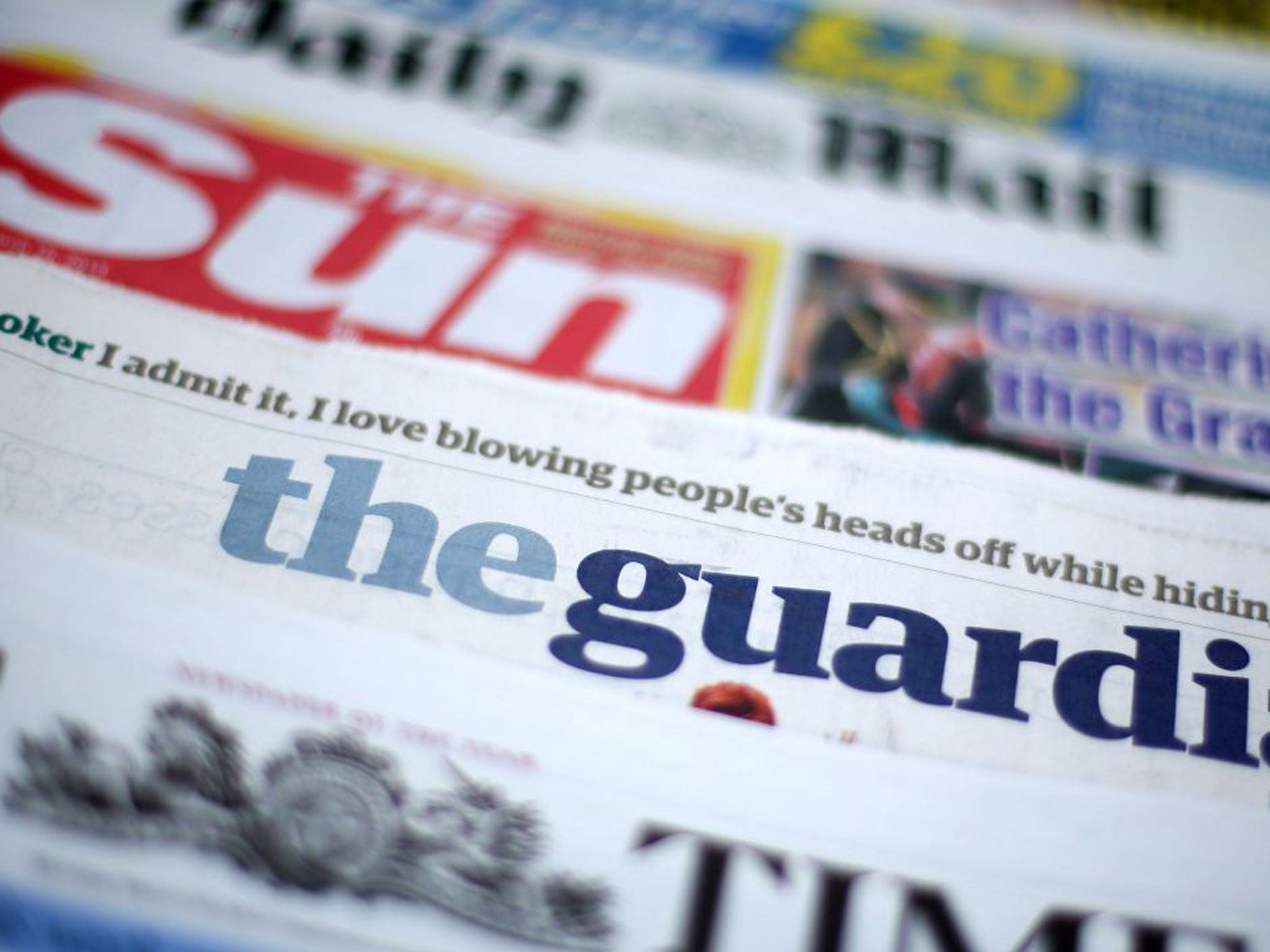Newspaper industry fails in final attempt to stop ministers' Royal Charter on press reform
Industry loses out in High Court hearing which could have seen hopes for its own charter proposal kept alive

Your support helps us to tell the story
From reproductive rights to climate change to Big Tech, The Independent is on the ground when the story is developing. Whether it's investigating the financials of Elon Musk's pro-Trump PAC or producing our latest documentary, 'The A Word', which shines a light on the American women fighting for reproductive rights, we know how important it is to parse out the facts from the messaging.
At such a critical moment in US history, we need reporters on the ground. Your donation allows us to keep sending journalists to speak to both sides of the story.
The Independent is trusted by Americans across the entire political spectrum. And unlike many other quality news outlets, we choose not to lock Americans out of our reporting and analysis with paywalls. We believe quality journalism should be available to everyone, paid for by those who can afford it.
Your support makes all the difference.A High Court judge has today blocked an attempt by the newspaper industry to thwart a Government Royal Charter on the regulation of the press.
Lord Justice Richards threw out an application by newspaper body PressBof for an injunction of a meeting today of the Privy Council at which the Government Royal Charter is set to be approved.
PressBof had claimed that a rival Royal Charter drawn up by the newspaper industry had been unlawfully rejected after being subjected to a “Kafkaesque” consideration process.
But Lord Justice Richards, sitting with Mr Justice Sales at an emergency hearing at the High Court, said that PressBof had failed to establish its case.
“The claimant must have understood the issues that needed to be addressed in own petition and it had a fair opportunity to address them,” he said.
The press Royal Charter was rejected by a committee of the Privy Council on 8 October on the grounds that it was not compliant with the recommendations of Lord Justice Leveson following his long inquiry into the press.
Richard Gordon QC, representing PressBof, told the emergency hearing that PressBof had not been given notice of a period of openness in which it could have made representation in support of its charter and that it was not provided with information on the process and the criteria on which its document would be judged.
“This process, we say, was conspicuously unfair,” he told the court. “It’s almost Kafkaesque in terms of not knowing what the next step is intended to be.”
But Nathalie Lieven QC, representing Maria Miller, the Culture Secretary, said: “There simply is no arguable case here that could possibly justify the granting of an injunction.”
A spokesman for the Department for Culture, Media and Sport said the court's ruling cleared the way for the implementation of the cross-party charter.
"Both the industry and the Government agree self-regulation of the press is the way forward and we both agree that a royal charter is the best framework for that," the spokesman said.
"We are clear the process for considering the industry royal charter was robust and fair and the courts have agreed. We can now get on with implementing the cross-party charter.
"A royal charter will protect freedom of the press whilst offering real redress when mistakes are made. Importantly, it is the best way of resisting full statutory regulation.
"We will continue to work with the industry, as we always have, and recent changes to arbitration, the standards code and the parliamentary lock will ensure the system is workable."
A statement from representatives for the press said: “We are deeply disappointed with this decision, which denies the newspaper and magazine industry the right properly to make their case that the Privy Council's decision to reject their Charter was unfair and unlawful.
“This is a vital constitutional issue and we will be taking our case for judicial review - of the Privy Council's decisions on both the industry Charter and the cross-party Charter - to the Court of Appeal.”
The Privy Council is due to consider the Government Royal Charter at 5.30pm today.
Join our commenting forum
Join thought-provoking conversations, follow other Independent readers and see their replies
Comments